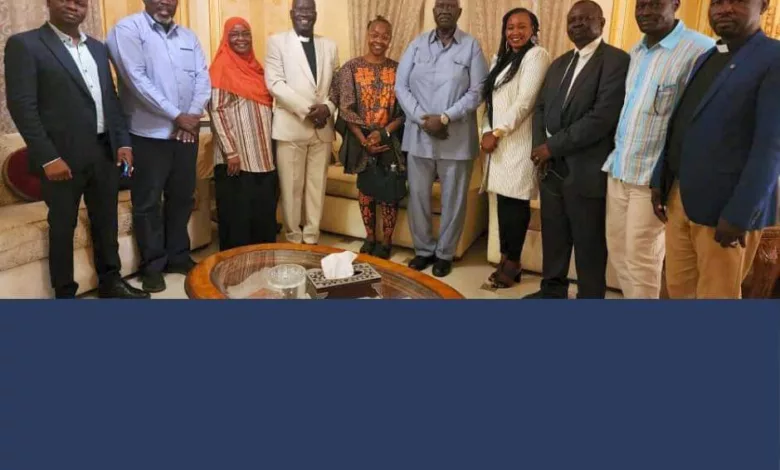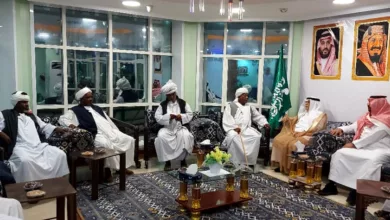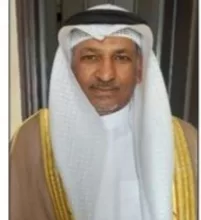عقار يلتقي مجموعة من قادة الكنائس السودانية لمناقشة خطة الحكومة لإنهاء الحرب وتخفيف آثارها على النازحين واللاجئين

English below
التقيت مساء الامس بمجموعة من قيادة الكنائس السودانية وكان الغرض من زيارتهم هو التعرف علي خطة الحكومة لانهاء الحرب ومناقشة الدور الذي يمكن ان تلعبه الكنيسة لتخفيف وطأة الحرب علي النازحين و اللاجئين لاسيما وانه في يوم الجمعة الموافق الخامس من اغسطس الماضي قد أُقيمت صلوات ضمت مجلس الكنائس العالمي ومجلس الكنائس الافريقي ومجلس الكنائس السوداني للصلاة من اجل انهاء الحرب في السودان.
تطرقنا خلال الاجتماع الي دور المجتمع الكنسي في انهاء الحروبات في السودان بداءاً باديس ابابا والمساهمة الفاعلة في انهاء حرب الجنوب والاستفادة من علاقات الكنائس السودانية في استقطاب الدعم الانساني وايصال المساعدات الانسانية من المنظمات الدولية ومناقشة آليات توزيعها علي السودانيين جميعاً دون تمييز علي اساس العرق او الدين او غيرهما من اشكال التمييز.
تناول الاجتماع الانتهاكات التي تعرضت لها الكنائس والدمار الذي طالها و التخريب المتعمد لها وقتل القساوسة و تعذيبهم و هنا قد طالبو الحكومة برصد هذه الانتهاكات وتوثيقها.
الى جانب ذلك تطرقنا الي تعدد المبادرات، التي لم تاخذنا الي مربع انهاء الحرب.
اتفقنا علي ان نحول هذه الكارثة الي منفعة ونوحد بها الوجدان السوداني ونوقف صوت البندقية الي الابد، ولتأسيس دولة جديدة يمكنها التقدم الي الامام و يفخر بها السودانيين.
حفظ الله شعب السودان
Yesterday’s evening, I met with a group of Sudanese church leaders. The purpose of their visit was to learn about the government’s plan to end the war and discuss the role that the church can play to ease the impact of the war on the displaced and refugees. Especially since on Friday, corresponding to the fifth of last August, prayers were held that included the World Council of Churches, the African Council of Churches, and the Sudanese Council of Churches to pray for an end to the war in Sudan.
During the meeting, we discussed the role of the church community in ending wars in Sudan Starting with Addis Ababa and actively contributing to ending the war in the south and benefiting from the relations of the Sudanese churches in attracting humanitarian support and delivering humanitarian aid from international organizations we also discussed mechanisms for distributing aid to all Sudanese without discrimination on the basis of race or religion or any other basis.
The meeting dealt with the violations that churches were subjected to, the destruction that affected them, the deliberate vandalism of them, the killing and torture of priests, and they called on the government to monitor and document these violations. We also touched on the multiplicity of initiatives, which did not take us to the square of ending the war.
We emphasized that we would turn this disaster into a benefit, to unite the Sudanese conscience with it, stop the sound of the gun in Sudan once and for all, and to establish a new state that can move forward and can make the Sudanese proud to be its citizens.
May God protect Sudan and the people of Sudan




